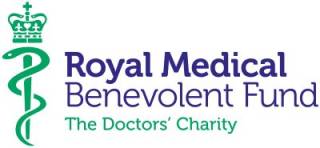This multi-method research project investigated causes of eligible medical students, doctors, or their families failing to approach the The Royal Medical Benevolent Fund (RMBF) for help
About the project
This project is supported by the Royal Medical Benevolent Fund, the UK charity for doctors, medical students, and their families.
The Royal Medical Benevolent Fund (RMBF) commissioned this research as they believe that (for reasons unknown to them) not all eligible medical students, doctors, or their families approach the charity for help; and that those who do approach them, do so at a late ‘crisis’ stage, and could have been helped much earlier.
This mixed-methods research project was conducted in 2021-2022 and consisted of five studies:
- literature review
- interviews with experts: individuals with experience of supporting doctors, medical students, and their families with ill-health and/or financial needs
- interviews with actual beneficiaries (people who have received financial support from the RMBF) and potential beneficiaries (people who have experienced ill-health and/or financial difficulty but who have not applied for or received financial support from the RMBF)
- secondary data analysis using data collected by the RMBF
- survey of doctors and medical students in the UK
Key findings
1. All medical doctors and students might be at risk of experiencing financial difficulties at some point in their careers and these difficulties might have a significant impact on them, such as dropping out of medical school, cutting down or doing without essentials, developing mental health issues, or delaying life decisions (e.g., starting a family) due to financial constraints.
2. A large percentage of survey participants indicated that they worried about their finances at some point in their lives (84.2%, 372) but just 35.2% (131) of those who worries sought help. One in three (33.5%, 148) experienced financial difficulties and over half (64.5%, 286) of participants knew colleagues/fellow students who had experienced financial difficulties.
3. Survey participants who did not seek help (or who only sought help at a late stage) said that the reasons were stigma, feelings of shame, being unclear about eligibility criteria, a lack of awareness of resources available for support, and lengthy, complex application processes.
4. The five pathways that can lead to financial difficulties were physical (such as illness), psychological (such as mental health or barriers to seeking help, e.g., stigma), social (such as caring responsibilities), financial (such as education and examination fees), and professional (such as contractual issues).
5. The groups that were particularly highlighted as having particularly high levels of need were:
- Medical students, particularly from widening participation backgrounds;
- Medical trainees because of student debt and training costs (e.g., exams);
- Overseas doctors;
- Doctors out of work not due to ill-health (e.g., under GMC investigation) or with non-substantive employment as these are less secure in their jobs;
- Medical doctors and students who were affected by the pandemic (e.g., being unable to work because of shielding, developing long-Covid, or students not being able to find work outside medicine due to the pandemic).
6. Approximately one third of medical doctors and students who completed the survey (36.9%, 163) said that they have been made aware of available financial support for them. Less than half (44.3%, 196) of medical doctors and students knew about the RMBF.
7. Positive views of the charity from medical doctors and students who completed the survey included attitudes of the charity towards potential beneficiaries (being supportive and non-judgmental) and the fact that the RMBF was providing additional non-monetary support, such as money and debt advice.
8. Some of the reasons for not approaching the RMBF were a lack of awareness of the support provided by the RMBF, preference to try other resources first, reluctance to use charity due to feeling that others may be more deserving of help, shame, and perceived challenges related to accessibility of the support (e.g., impression that the RMBF helps just when someone is in dire circumstances).
9. Perceived stigma around ill-health and financial difficulties among participants was high:
- 90.7% agreed/strongly agreed with the statement about not disclosing ill-health problems because of a medical culture that stigmatises illness in doctors and medical students;
- 48.3% agreed/strongly agreed that doctors/medical students who seek support for ill-health problems risk being involved in fitness to practise processes;
- 90.3% agreed/strongly agreed with the statement about not disclosing financial difficulties due to feeling embarrassed.
10. The key recommendations to reach potential beneficiaries could include raising awareness, refining the application process, and clarifying eligibility criteria.
Links
You can find more information here:
 Close
Close



